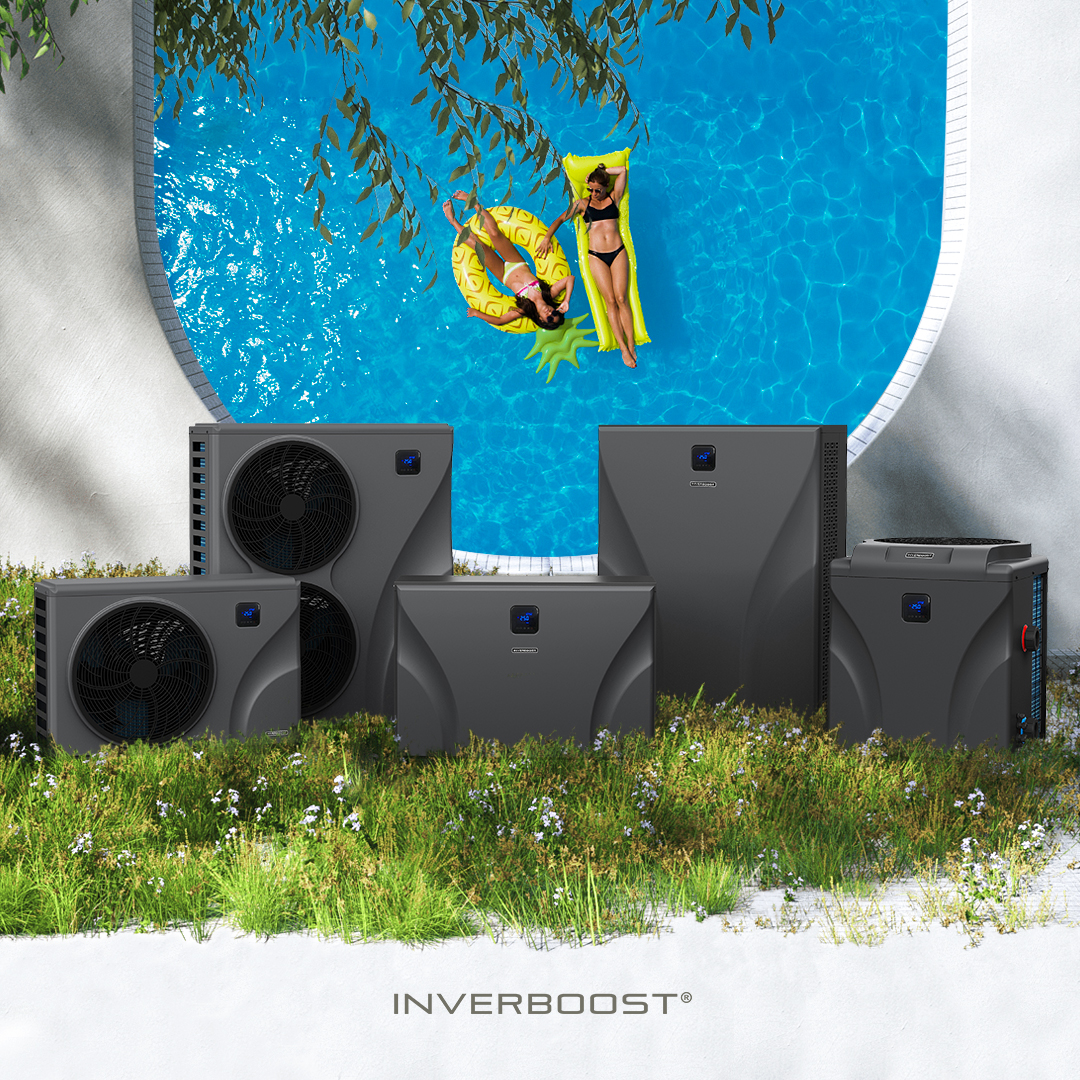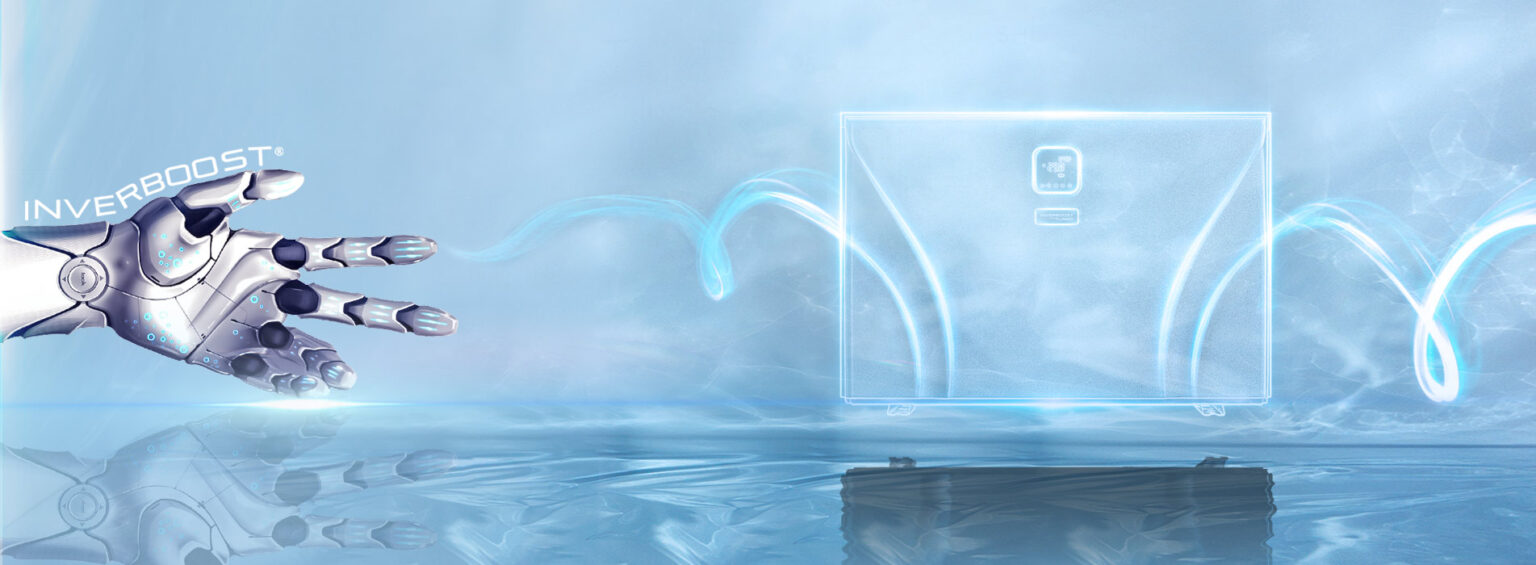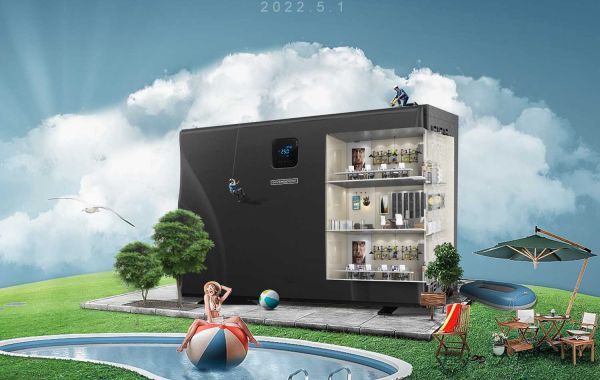What is an Inverter Pool Heat Pump and How does it Work?
An inverter pool heat pump is a cost, and energy-efficient way to ensure your pool is at swimming temperature throughout the warmer seasons. The technology in inverter pool heat pumps ensures your swimming pool water temperature is consistently maintained at what you set it to. For convenience and consistency, the inverter swimming pool heat pump allows you to set the desired water temperature and this will be attained automatically by the pool heat pump. Inverter technology allows set temperatures to be reached and maintained more precisely and efficiently than other heating systems. In some inverter pool heat pumps, full control is available from your device, with a wi-fi control feature.
The Technology In Inverter Pool Heat Pumps
Through the process of drawing warm air from the atmosphere and then transferring that heat into your outdoor swimming pool, inverter pool heat pumps can provide a consistent water temperature. Because they can draw heat from the atmosphere in all conditions, this makes them more consistent than solar pool heating systems. A variable frequency drive heat pump allows fans and compressors to run at variable speeds ranging from 25% to 100% depending on the load. When initially turned on, the INVERBOOST pool heat pumps will run at 100% speed to bring the pool to temperature. Once the pool reaches the desired temperature, the variable frequency pool heater can reduce and match its output to keep the pool at the desired temperature. The ability of the heat pump to adjust its output to meet the needs of the pool can result in significant cost savings.
INVERBOOST Inverter Pool Heat Pump Use DC Power To Turn On And Off
The difference between the two power supplies is that the AC power supply changes from 0-60 Hz immediately when it is turned on. In other words, 0 to Max immediately. In order to start the motor and make it rotate, this kind of start requires a lot of extra energy. The starting capacitor is used to store additional energy to provide additional energy to the motor when starting. Most of us are familiar with this type of motor when we see the lights temporarily dim when the old AC power is turned on. This kind of difficult starting and stopping will consume more energy and will bring more extra pressure to it because it will become bumpier due to the extra energy.
Inverter Motors Are Completely Different. It Uses DC Power.

Unlike AC power, we can modulate energy in the range of 0-60 + Hz. What does it mean? This means that when we start the compressor, we will slightly increase the speed at the start until it reaches the operating speed. This results in an ultra-quiet start, with no additional torque on the compressor motor. Without using a starting capacitor, we achieve peak efficiency without wasting energy.
INVERBOOST Inverter Heat Pumps Can Also Save Money By Heating Only To The Target Temperature.
It can do this because its frequency is variable and it only needs to reduce its running speed to match the load of the swimming pool. The traditional heat pump turns on when 1-2 degrees below the setpoint and turns off when 1-2 degrees above the set point. This means that we have 1/2 of the time to run hotter than needed, and the other 1/2 of the time to be colder than needed. By adjusting the frequency up or down to match the load, pool heaters can be dialed to maintain an accurate pool temperature. ZEALUX pool heat pump manufacturer use full inverter technology, which means that not only the compressor is a full DC inverter compressor, but also the fan motor. The onboard optimizer matches the fan speed to the compressor speed to provide the greatest possible performance/cost ratio. 








